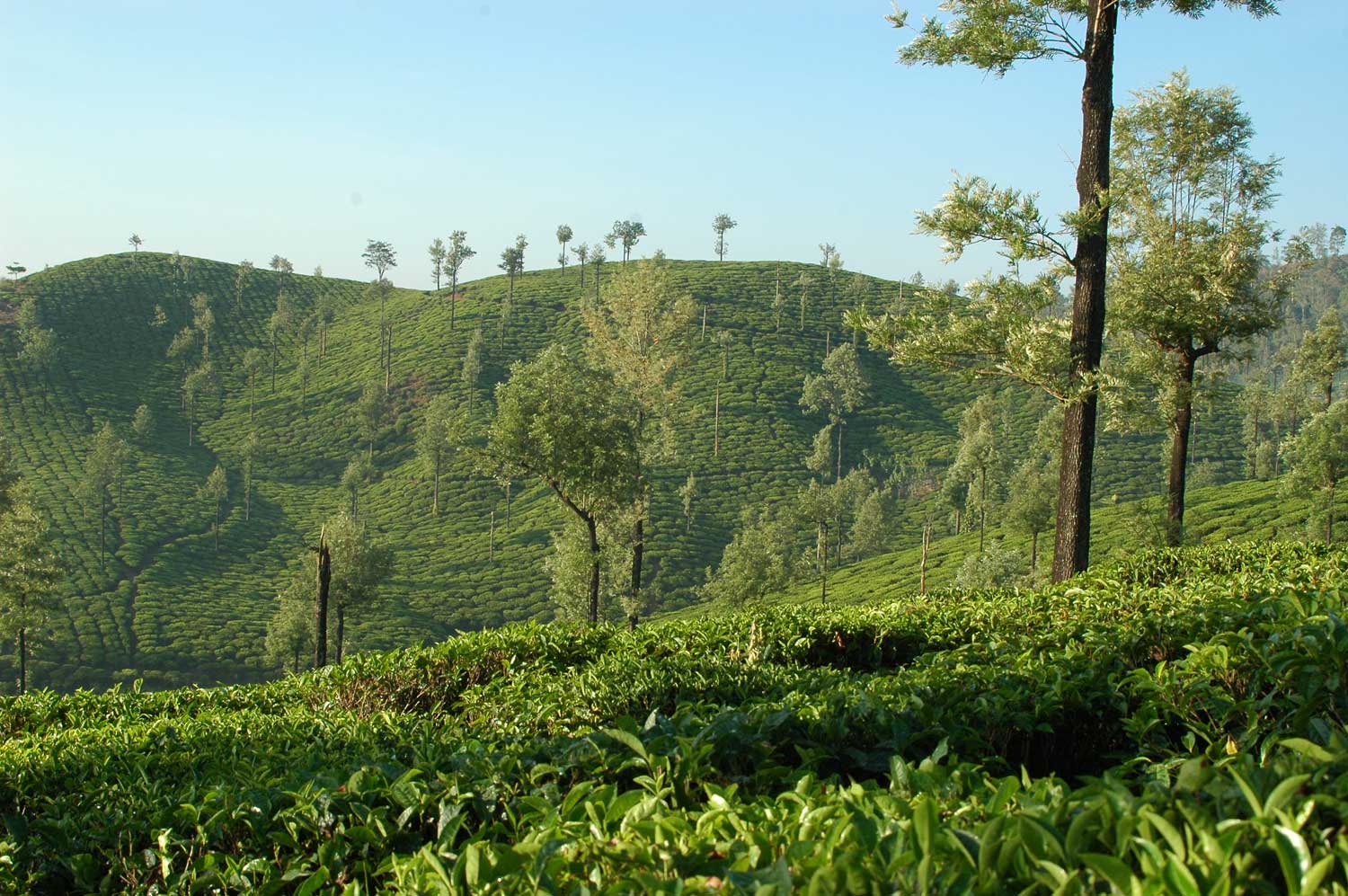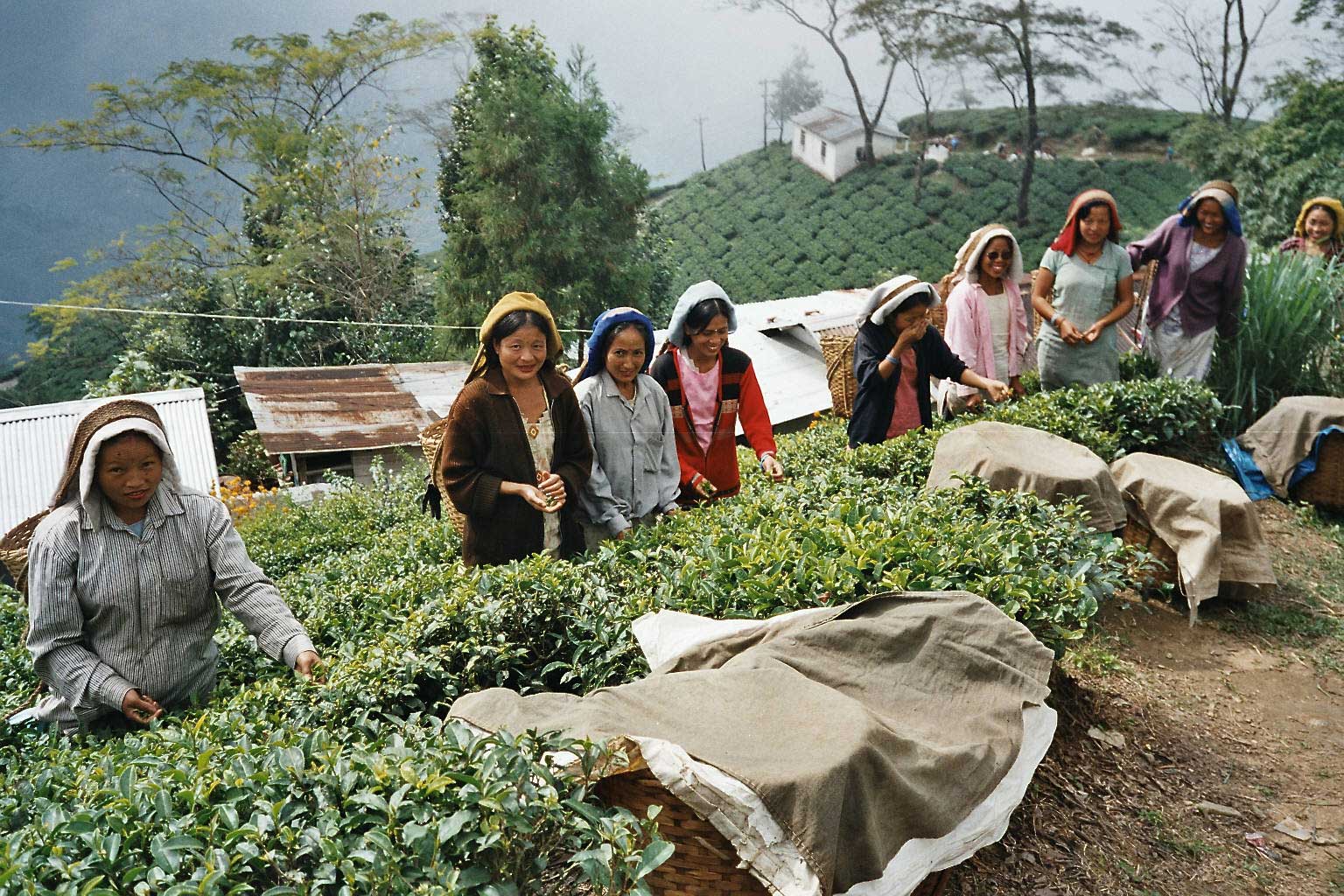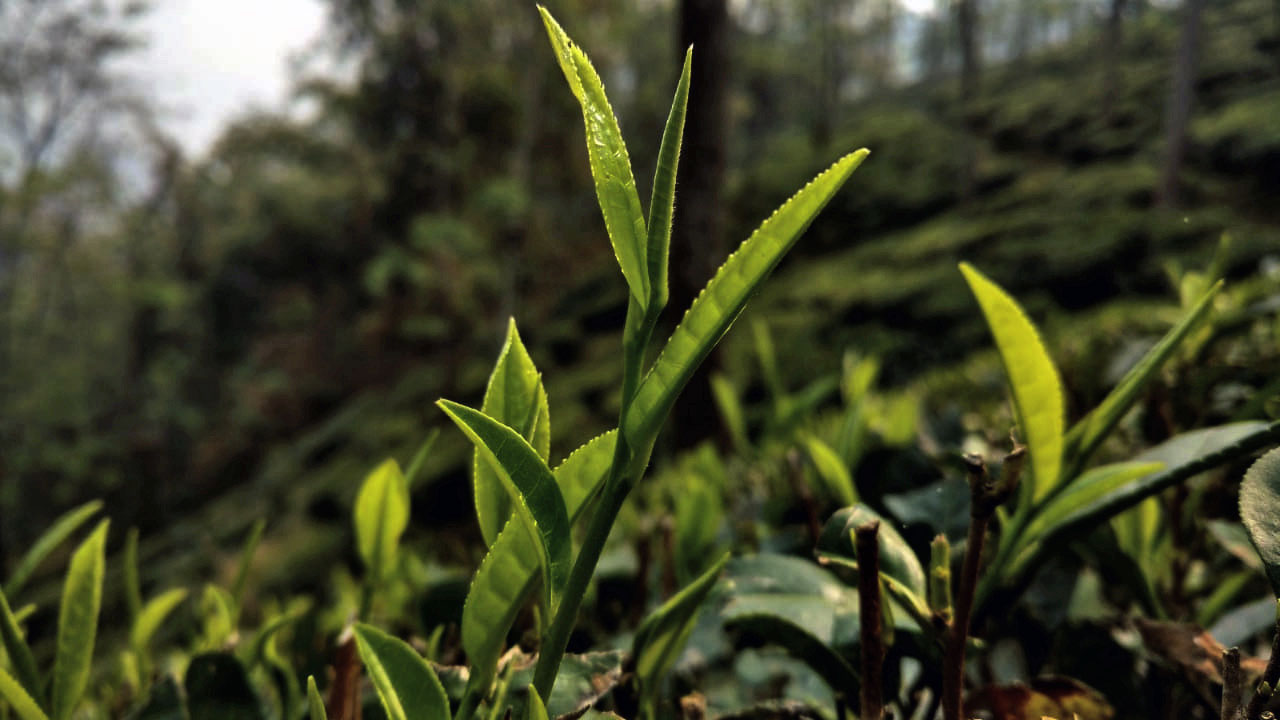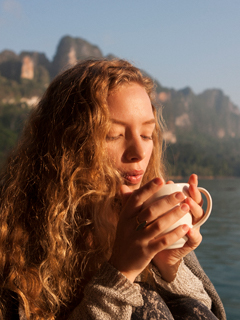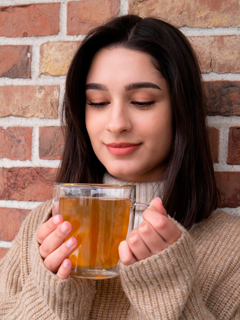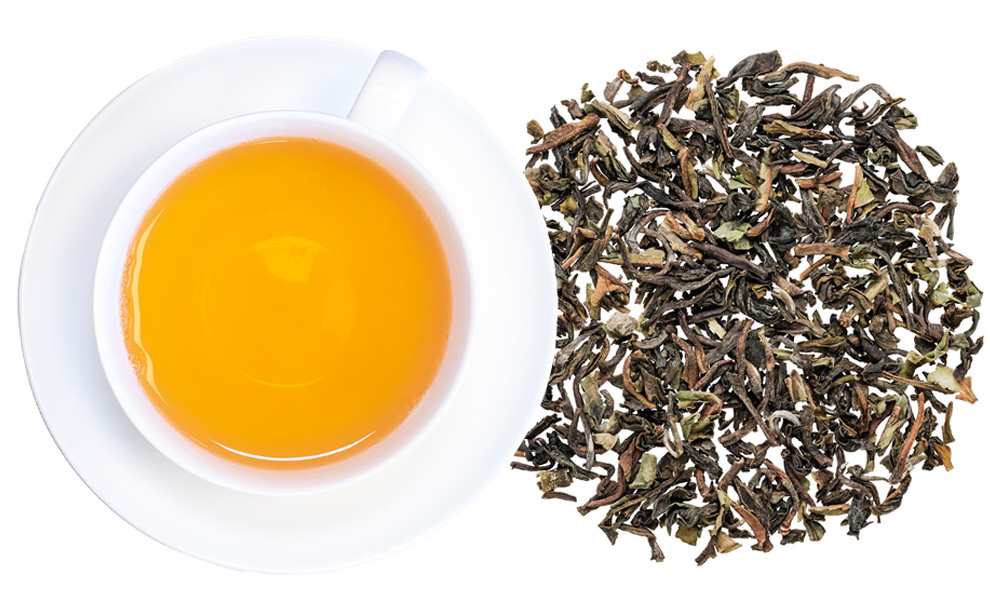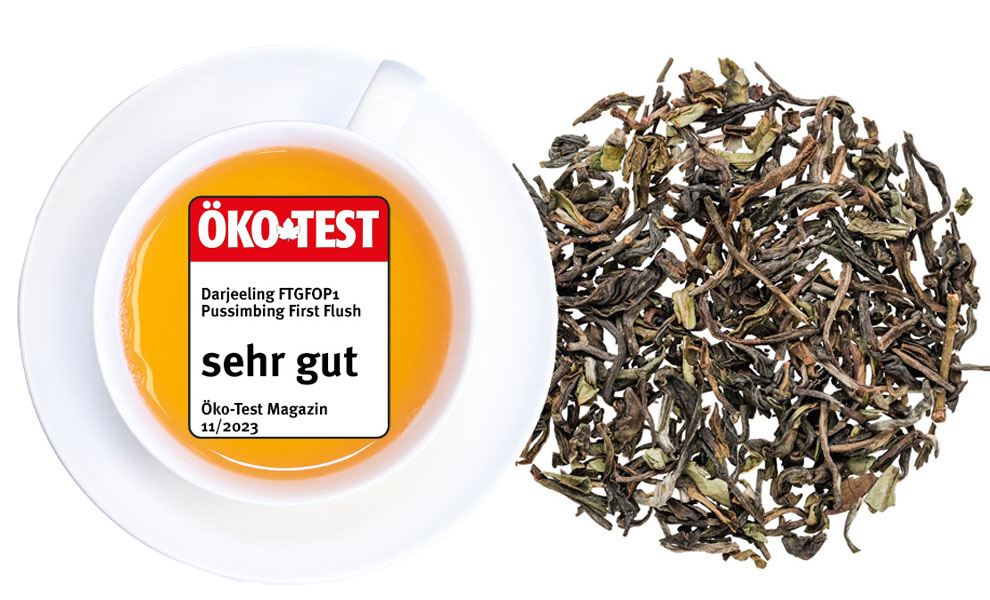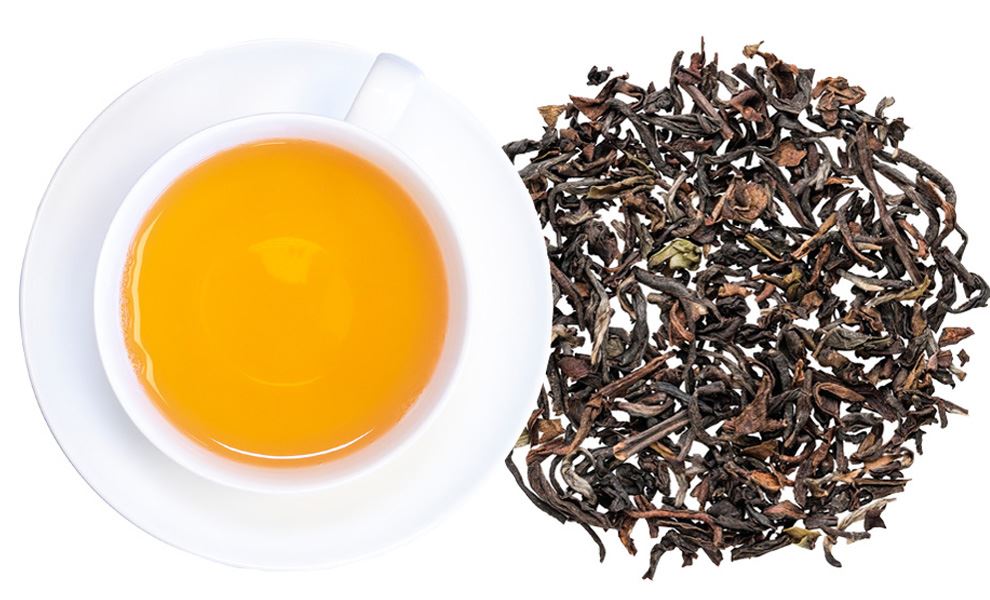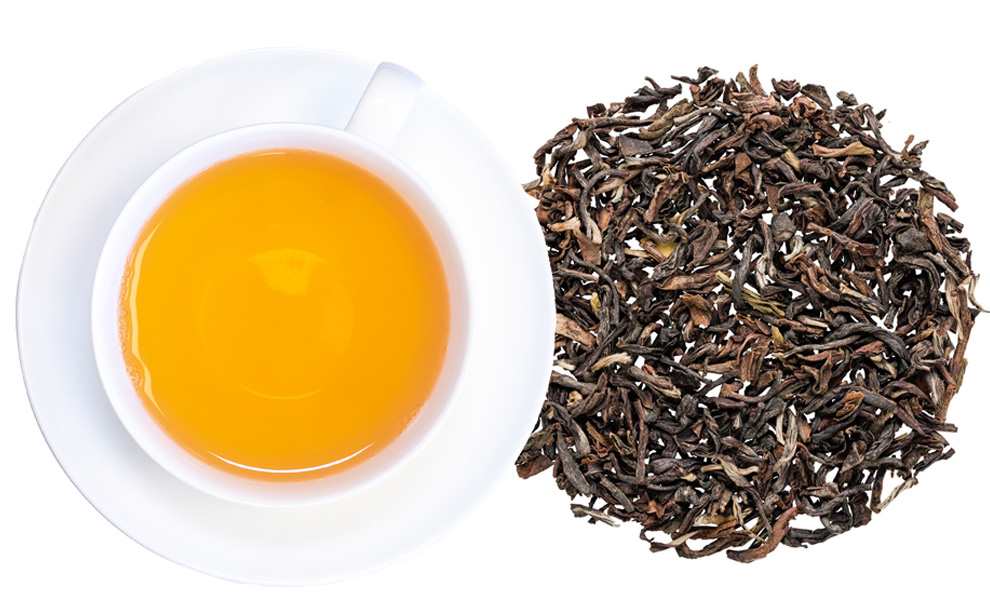
Darjeeling tea - the crown jewel of Indian black tea
Darjeeling is the epitome of delicious, nuanced and harmonious flavour. The "champagne of teas" comes from one of the most renowned tea-growing regions in the world. A tea garden in Darjeeling is organised like a small village. The workers live with their families within the tea gardens, with an average of around 900 to 2000 people per garden. Facilities such as housing, hospitals, kindergartens and schools are widely available in the tea gardens of India, and the services of these social facilities are free of charge for family members.
The cup colours of Darjeeling
First Flush
When the mountain sun awakens the first shoots in March, the first picking period begins. Depending on the climate, first flushes are produced for four to six weeks. Good first flushes taste delicate, fresh and flowery and have a fine, tangy flavour.
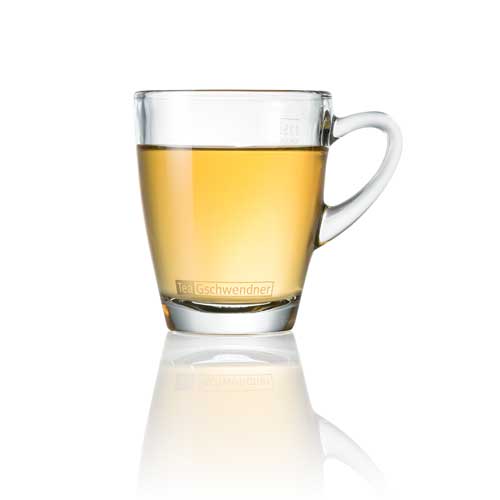
In Between
The "In Between" is then harvested at the beginning of April, initially still showing clear traits of the first flush, but then heralding the strong second flush in May.
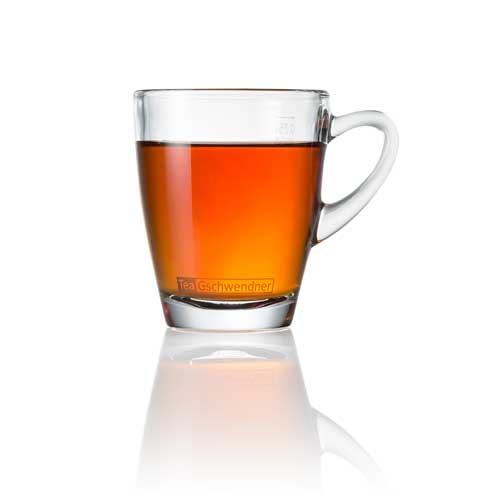
Second Flush
The second flush is picked from the end of May to the end of June - at the peak of leaf growth. Now the leaves are bursting with aromas, the tea is stronger than the first flush, nutty, highly aromatic with a yellowish-brown-reddish cup colour.
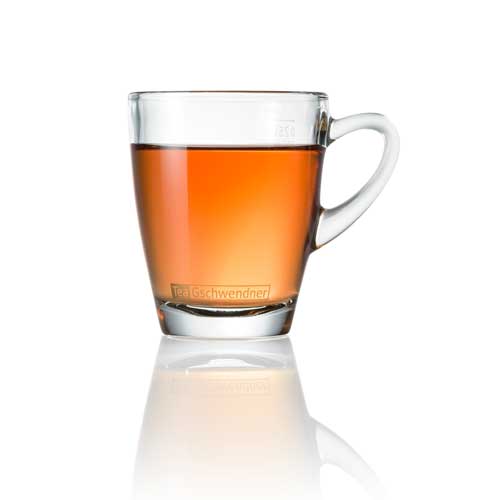
Monsoon
The strong bread and butter teas are harvested between July and October, i.e. during and after the monsoon season. The harvest quantities are significantly higher than the quality.

Autumnal
After the rains in October, good teas can be produced again. Typical for these Autumnals is a light cup with a sweet flavour.

Protected Geographical Indication
Our teas from Darjeeling - easy to recognise as they all bear the designation of origin "Darjeeling" in their name - are labelled with the EU logo for "Protected Geographical Indications".
(€146.00* / Kilogram)

First Flush
During the vegetation break from November to March, all tea production comes to a standstill. When the mountain sun awakens the first shoots in March, the first plucking period begins. Depending on the climate, first flush is produced for 4 to 6 weeks. Good first flush teas taste delicate, fresh and flowery and have a fine, tangy flavour.
The daily production at the beginning of the season in the good locations is around 125 to 150 kg of finished tea. As the year progresses, the production quantities are increased considerably. As in the following harvest periods, each garden produces extremely different qualities during the first flush.
The excellent very early pluckings achieve top prices and are flown in year after year by "TeeGschwendner" in order to be able to offer tea lovers the full freshness of these teas.
(€135.00* / Kilogram)

In Between and Second Flush
Depending on the weather conditions, the "In Between" is then harvested around the beginning of April, which initially still shows clear traits of the first flush, but then heralds the highly aromatic, nutty and strong second flush in May. This is then harvested from the end of May to the end of June and its cup colour is yellowish-brown-reddish. The top quality second flushes fetch even higher prices than the best first flushes. After the second flush season, the big monsoon rains begin. The harvests up to September produce high yields but correspondingly low qualities. After the rains in October, good teas can be produced again. A light cup with a sweet flavour is typical of these Autumnals.
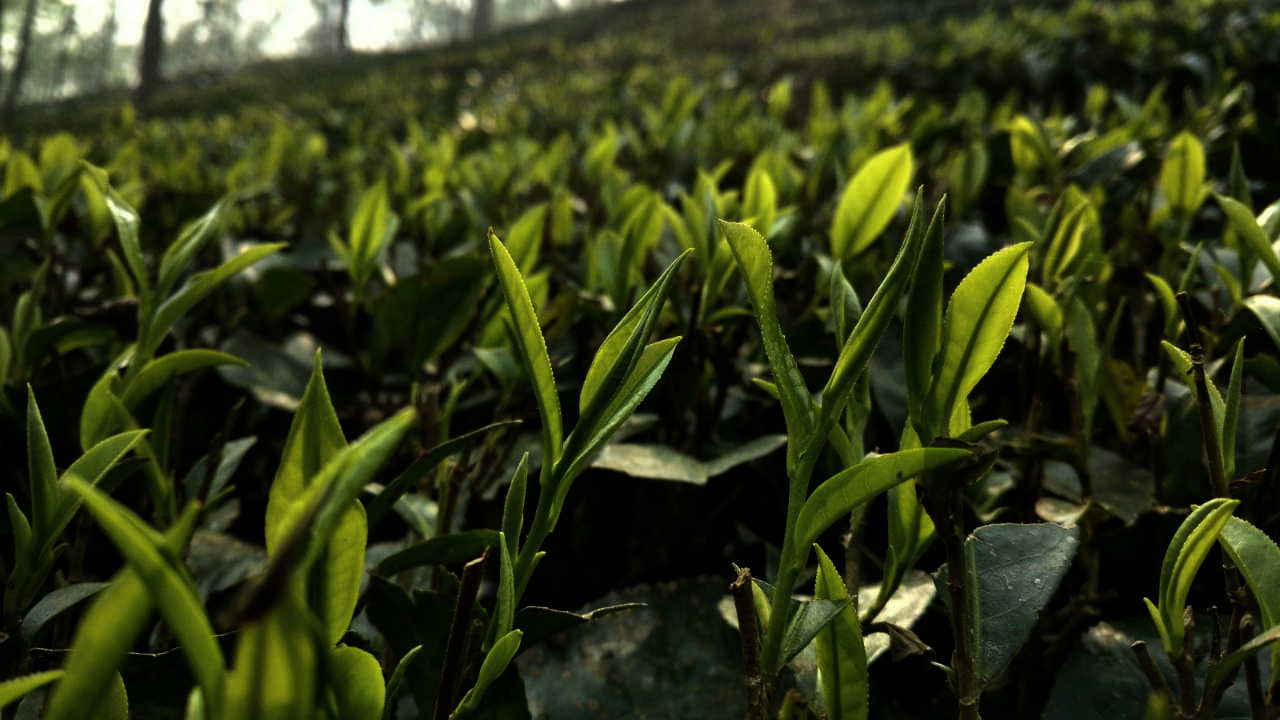
Our black teas from Darjeeling
Discover our delicious variety of premium teas from Darjeeling. Due to its exquisite flavour, Darjeeling tea is best enjoyed without sugar. If you would still like to sweeten your Darjeeling tea, we recommend a small spoonful of white rock candy.
